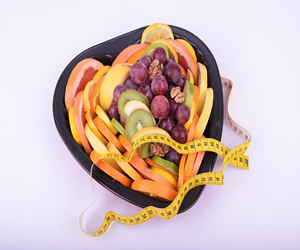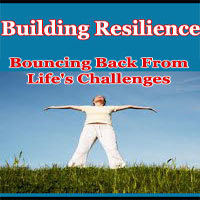


A Lifelong Journey To Wellness

Long-term health, often referred to as lifelong health, is the ultimate goal when it comes to well-being. It's about maintaining optimal physical, mental, and emotional health throughout your life, rather than seeking quick fixes or short-term solutions. In this article, we'll explore the importance of long-term health, the benefits it offers, and how to invest in it effectively.
Understanding Long-Term Health
Long-term health is a comprehensive concept that encompasses the physical, mental, and emotional aspects of well-being. It's not just about living a long life but ensuring that the years you live are characterized by vitality, quality, and happiness. It emphasizes the prevention of diseases, the promotion of health, and the pursuit of a fulfilling life.
The Significance Of Long-Term Health
Prevention Over Treatment: Long-term health focuses on preventive measures rather than reactionary treatments. By adopting a proactive approach to well-being, you can reduce the risk of developing chronic conditions and other health issues.
Sustainability: Short-term solutions and crash diets often result in temporary improvements, followed by relapses. Long-term health is sustainable, promoting consistent well-being that lasts a lifetime.
Quality Of Life: Long-term health is not just about living longer but living better. It ensures that you can enjoy life to the fullest, with the physical and mental vitality to pursue your interests and passions.
Reduced Healthcare Costs: By investing in long-term health, you can potentially reduce healthcare costs associated with the treatment of chronic illnesses, doctor visits, and medications.
Investing In Long-Term Health
Balanced Diet: A diet rich in nutrient-dense foods is the foundation of long-term health. Emphasize fruits, vegetables, whole grains, lean proteins, and healthy fats. Minimize processed foods, added sugars, and excessive salt.
Regular Physical Activity: Incorporate regular exercise into your routine. Engage in a mix of aerobic, strength, and flexibility exercises to promote overall physical well-being.
Mental Health: Prioritize your mental health by managing stress, practicing mindfulness, and seeking support when needed. Mental well-being is as crucial as physical health for long-term wellness.
Preventive Healthcare: Schedule regular check-ups and screenings to catch potential health issues early. Preventive healthcare measures can help you address concerns before they become significant problems.
Sleep And Rest: Ensure you get sufficient quality sleep, as restorative rest is crucial for overall well-being. Maintain a consistent sleep schedule to support your body's natural rhythms.
Social Connections: Nurture meaningful relationships with friends and family. Social connections are essential for emotional well-being and provide a support system for life's challenges.
Stress Management: Develop effective stress management techniques, such as deep breathing, meditation, or hobbies that help you relax and unwind.
Long-term health is the ultimate aspiration when it comes to well-being. It's a journey, not a destination, and it involves consistent efforts to maintain physical, mental, and emotional wellness. By adopting a proactive approach that includes a balanced diet, regular exercise, mental health support, preventive healthcare, rest, and nurturing social connections, you can invest in a future characterized by vitality, quality of life, and fulfillment. Remember that each step you take today is an investment in a healthier and happier tomorrow.
Nourishing The Body, Mind, And Spirit
 Digestive Health: A healthy gut is a cornerstone of holistic health. Superfoods like yogurt with probiotics, chia seeds, and fermented foods support a balanced gut microbiome. A well-functioning digestive system is not only essential for physical health but also for mental well-being.
Digestive Health: A healthy gut is a cornerstone of holistic health. Superfoods like yogurt with probiotics, chia seeds, and fermented foods support a balanced gut microbiome. A well-functioning digestive system is not only essential for physical health but also for mental well-being.
Energy And Vitality: Superfoods are often excellent sources of complex carbohydrates, healthy fats, and plant-based protein. These macronutrients provide the body with energy, promoting vitality and endurance for daily activities and exercise. Having the energy to enjoy life to the fullest is a vital aspect of holistic health.
Mental Clarity And Mood: The nutrients in superfoods can positively influence brain health. Omega-3 fatty acids found in fatty fish, for example, have been linked to improved cognitive function and mood regulation. A clear mind and balanced mood are integral to holistic health.
Heart Health: Superfoods like nuts, berries, and fatty fish are known for their heart-protective properties. A healthy heart ensures optimal blood circulation, reducing the risk of cardiovascular issues and supporting overall vitality.
Emotional And Psychological Well-Being: The impact of diet on mental health is increasingly recognized. Superfoods, particularly those rich in antioxidants and essential nutrients, can contribute to emotional well-being by reducing stress, anxiety, and depressive symptoms.
Spiritual Nourishment: In holistic health, nourishing the spirit is just as important as nourishing the body and mind. Some superfoods like green tea and matcha, used in meditation practices, offer a sense of calm and spiritual connection.
Environmental And Ethical Considerations: Superfoods can be part of a holistic approach by supporting sustainable and ethical food choices. Choosing locally sourced, organic, and ethically produced superfoods aligns with the holistic principle of interconnectedness with the environment and community.
A Blueprint For Thriving In Adversity
 Resilience is not an innate trait; it is a set of skills that can be developed over time. At its core, resilience involves a combination of mental and emotional processes that enable individuals to cope with stress, adapt to change, and navigate difficult situations with grace. Here are some key aspects of resilience:
Resilience is not an innate trait; it is a set of skills that can be developed over time. At its core, resilience involves a combination of mental and emotional processes that enable individuals to cope with stress, adapt to change, and navigate difficult situations with grace. Here are some key aspects of resilience:
Emotional Regulation: Resilient individuals can manage their emotions effectively. They understand their feelings and have the tools to handle them in a healthy way.
Adaptability: Resilience is closely linked to adaptability. Those who are resilient are more open to change and can adjust their plans and strategies as needed.
Problem-Solving: Resilient individuals approach challenges with a solution-oriented mindset. They seek opportunities for growth and learning in difficult situations.
Optimism: Resilience is associated with a positive outlook. Resilient people can find the silver lining in adversity and maintain hope for the future.
Building Resilience Skills
Develop Emotional Intelligence: Start by enhancing your emotional intelligence. This involves recognizing, understanding, and managing your own emotions and being attuned to the emotions of others. Emotional intelligence provides a strong foundation for resilience.
Cultivate Self-Awareness: Know yourself and your reactions to stress and adversity. Self-awareness allows you to identify your triggers and vulnerabilities, enabling you to respond more effectively to difficult situations.
Build A Support System: Surround yourself with a support system of friends, family, or a therapist. Social support is a crucial element in resilience, as it provides a safety net during tough times.
Nature's Soothing Elixir
 The Science Of Aromatherapy
The Science Of Aromatherapy
Aromatherapy, the practice of using essential oils for therapeutic purposes, capitalizes on the connection between our sense of smell and the brain's limbic system, which governs our emotions. The aromatic compounds in essential oils can influence our mood, emotions, and even our physical well-being.
Stress Reduction: A Holistic Approach
Stress affects us on multiple levels, and a holistic approach to its reduction is essential. Essential oils can address the interconnected aspects of stress, providing relief on both emotional and physical levels.
Emotional Stress Relief
One of the most well-known benefits of essential oils is their ability to alleviate emotional stress. Oils like lavender, chamomile, and rose can have a calming and soothing effect on the mind. Inhaling these fragrances or using them in massages can help reduce anxiety, lower stress levels, and promote a sense of well-being.
Physical Stress Relief
Stress often manifests physically, leading to muscle tension, headaches, and other discomforts. Essential oils like eucalyptus, peppermint, and ginger are valuable allies in relieving physical stress. They can be applied topically, diluted in carrier oils, or added to bath water to ease muscle tension and reduce headaches.
Stress Reduction Rituals
Incorporating essential oils into your daily routines can create a calming and stress-reducing environment.






The Key To A Balanced Diet And Healthy Eating
 Understanding Portion Control
Understanding Portion Control
Portion control involves being mindful of the quantity of food you eat during a meal or snack. It's not about depriving yourself but rather about ensuring that you consume a suitable amount of nutrients while avoiding excessive caloric intake. Proper portion control helps you better manage your caloric intake, which is crucial for weight management and overall health.
The Importance Of Portion Control
Weight Management: One of the primary benefits of portion control is its role in weight management. Consuming smaller, balanced portions can help prevent overeating, which is often a significant contributor to weight gain and obesity.
Balanced Nutrition: Portion control encourages a balanced intake of nutrients. It ensures that you get a variety of foods in appropriate amounts, which is essential for overall health and well-being.
Digestive Health: Eating moderate portions can alleviate digestive discomfort and prevent issues like indigestion, bloating, and heartburn.
Blood Sugar Control: Portion control can help stabilize blood sugar levels, making it a valuable strategy for individuals with diabetes or those at risk of developing the condition.
Mindful Eating: It encourages mindful eating, a practice that promotes greater awareness of hunger and fullness cues, reducing the likelihood of emotional or overindulgent eating.
Maximizing Your Kitchen Productivity
 3. Multi-Task
3. Multi-Task
Efficient cooking often involves multi-tasking. While one dish is simmering, you can be chopping ingredients for the next one. Just be sure to keep an eye on what's cooking to prevent burning or overcooking.
4. Use Kitchen Appliances
Kitchen appliances like food processors, blenders, and slow cookers can save you a lot of time and effort. Food processors can quickly chop, slice, and shred vegetables, while slow cookers allow you to prepare meals in the morning and return to a ready dinner in the evening.
5. Cook In Batches
Cooking efficiency is all about making the most of your time. When preparing meals, consider making extra portions. Leftovers can be used for future meals, eliminating the need to cook from scratch every day.
6. Embrace One-Pot And Sheet Pan Meals
One-pot and sheet pan meals are a time-saving marvel. They involve cooking an entire meal in a single pot or on a single sheet pan, minimizing cleanup and simplifying the cooking process.
7. Time-Saving Ingredients
Choose ingredients that are quick to cook or require minimal preparation. For example, opt for boneless, skinless chicken breasts over whole chickens, or use canned beans instead of dried ones that require soaking and long cooking times.
8. Learn Quick Cooking Techniques<
Mastering fast cooking techniques like stir-frying, sautéing, and pan-searing can help you prepare meals in minutes. These methods are not only efficient but also help retain the flavor and nutrients in your food.
9. Organize Your Kitchen
An organized kitchen is a key to cooking efficiency. Keep your kitchen well-arranged, with pots and pans easily accessible, utensils at arm's reach, and spices organized for quick retrieval.
10. Clean As You Go
Efficient cooking also involves cleaning as you go. This means washing dishes, utensils, and countertops as you finish using them, rather than letting the mess pile up.